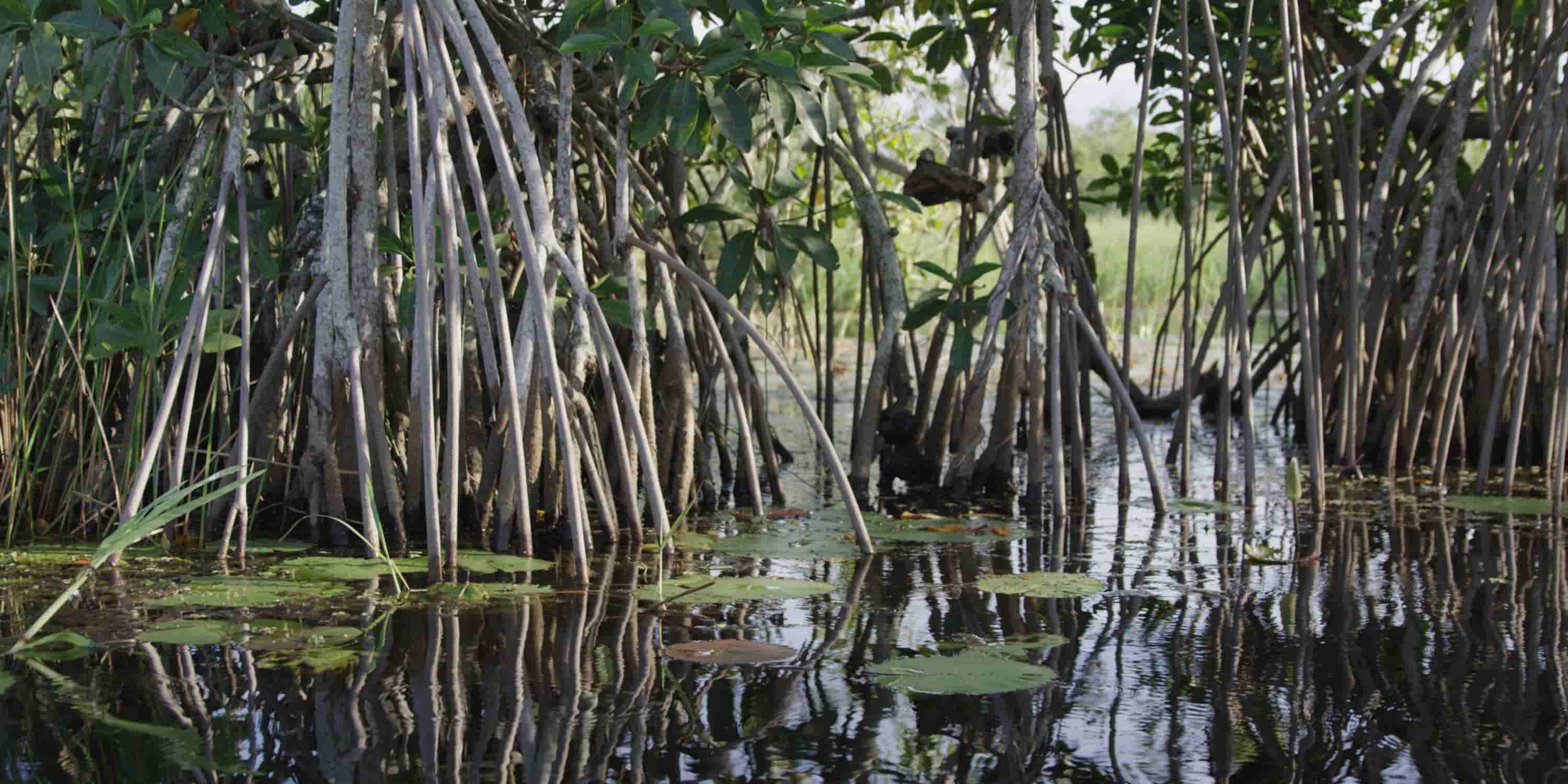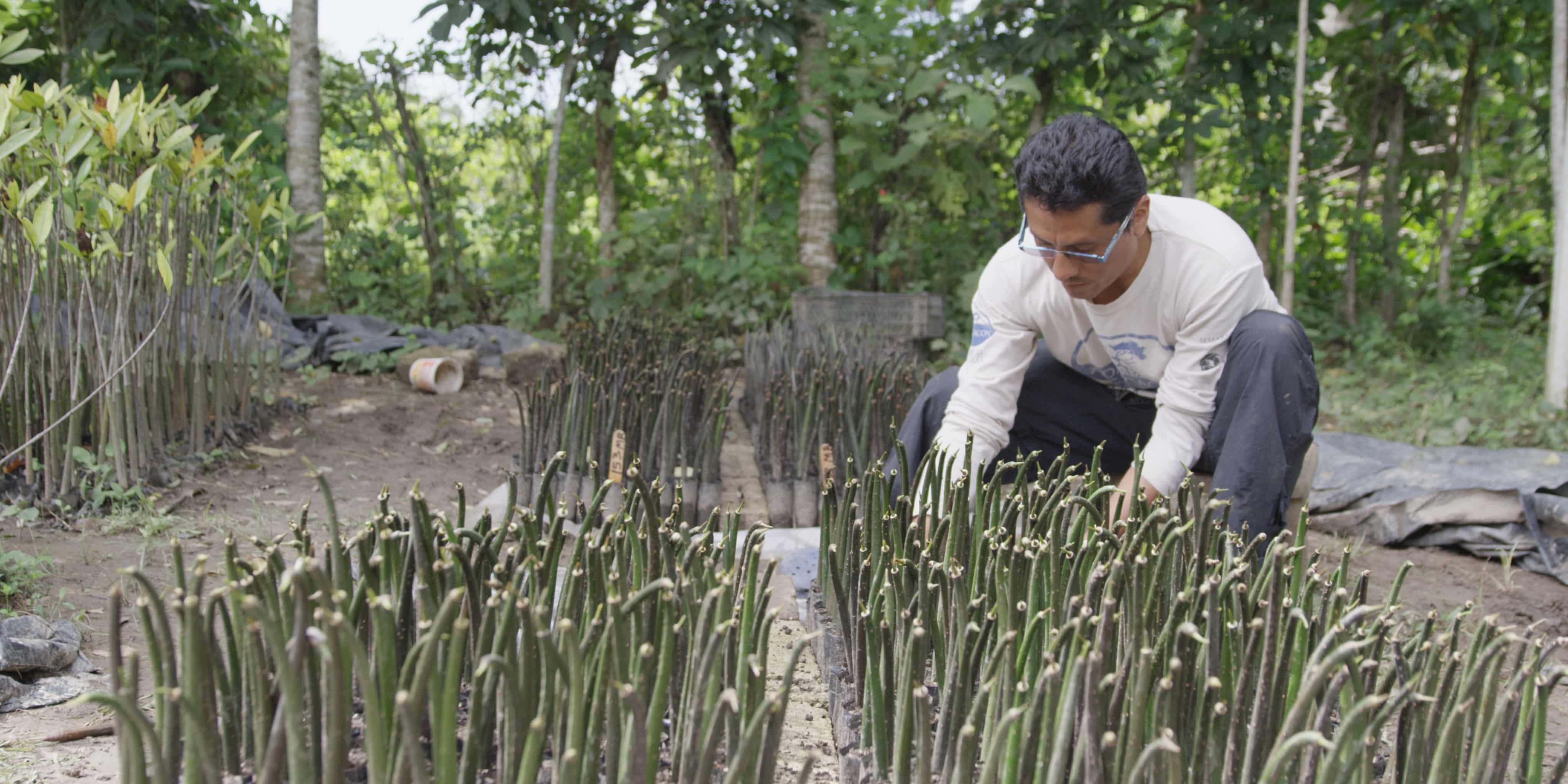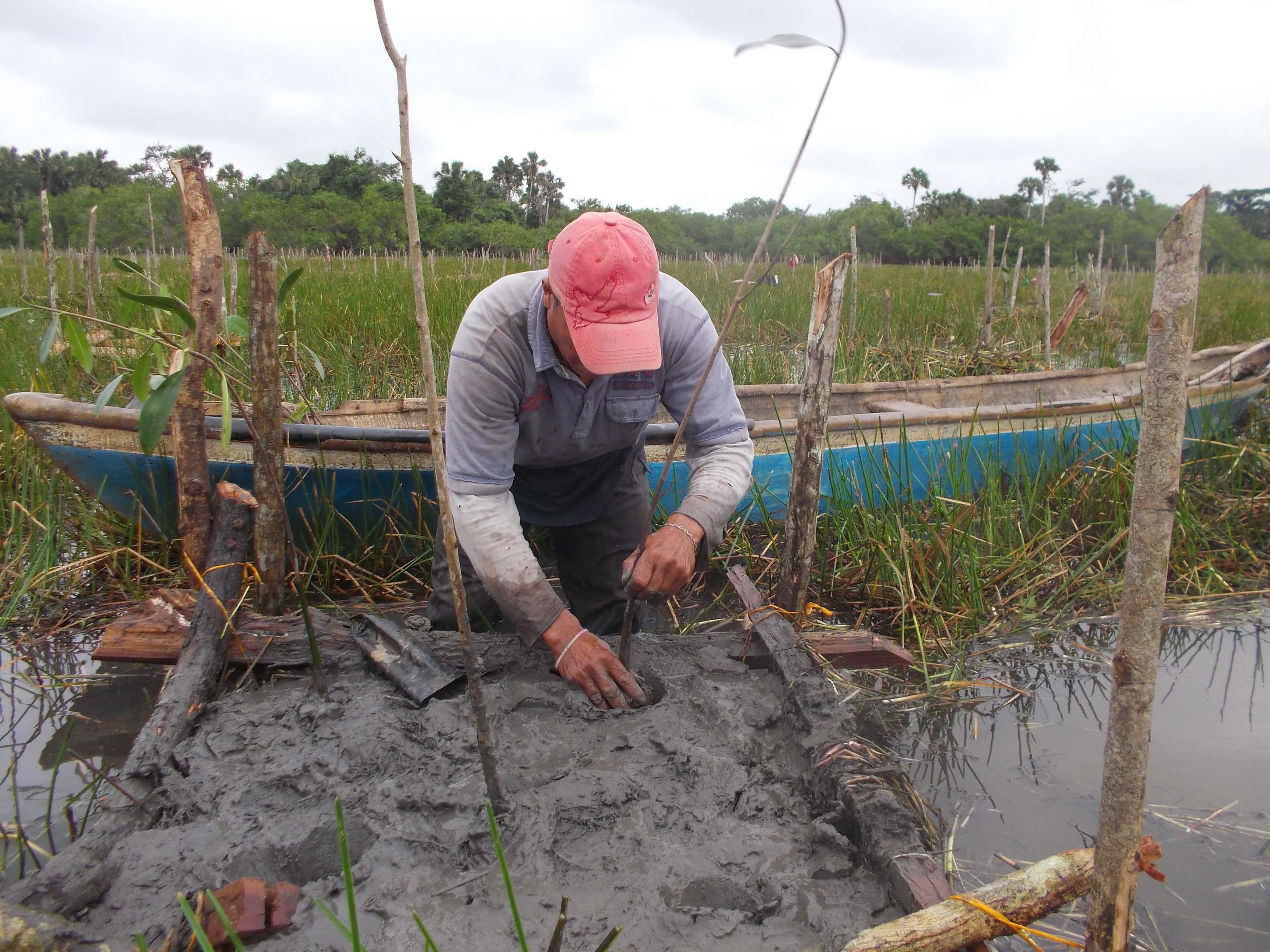



Taking advantage of project funds, and the existence of two government schemes to support sustainable management and protection:
i) Private Protection Areas (APC, for its acronym in Spanish), and
ii) Environmental Management Units (UMA, for its acronym in Spanish).
In Veracruz, the APCs represent a scheme of voluntary conservation, in which the local population joins the efforts of the state to strengthen the protected natural spaces of the region. At the APC "El Pajaro", INECC together with the local grassroots organizations initiated a series of actions to manage 25 ha of mangroves. The strategy involved participatory work with the people of the communities to increase awareness of what it means to have a healthy mangrove, and continued with capacity development activities on how to manage it.
The management plans for the UMA of the mangrove ecosystem owned by the Tarachi ejido (local government unit) included the provision of equipment and infrastructure, and training to carry out the following activities:
i) reforestation with native species;
ii) establishment of a conservation protocol and standards to be followed by local communities; iii) establishment of guidance on economic activities that could be developed without affecting the ecosystem.
- Sufficient economic and human resources to be able to employ local communities to carry out rehabilitation work;
- Support of the community to maintain the improvements that have been achieved in the wetland;
- Sufficient evidence to demonstrate to the communities that the collective work carried out in the APC and the UMA is bringing broader benefits for the areas and activities adjacent to said management units.
- Private Protection Areas (APCs) need to offer greater benefits to land owners who join voluntarily.
- Project activities can set a good precedent for encouraging the state to strengthen existing management schemes;
- The APCs can function as spaces of experimentation in good practices, but it is necessary to involve both the community and the local authorities;
- Good management of the NGO network and the long-term presence of field workers necessary for capacity development is essential;